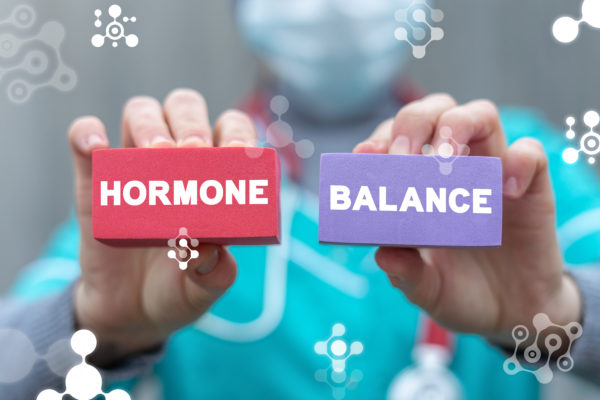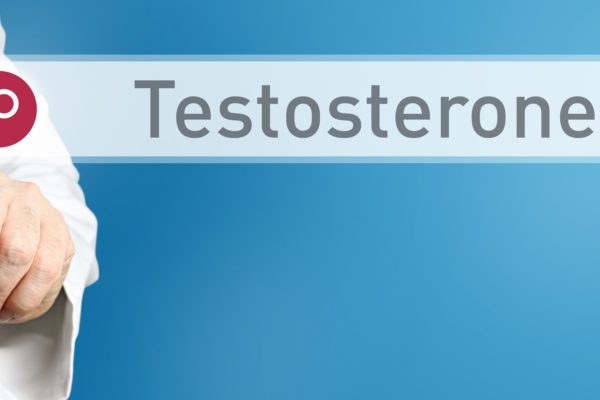We are facing an obesity crisis in our nation and all across the western world. While it is easy to blame obesity on the diets and underlying habits of the people suffering from it, the reality is that it isn’t always so simple.
To begin with, our culture has morphed into a machine that has no respect for work-life balance. For working parents especially the daily routine of getting up early, finding something fast to eat either on the way to work or once we arrive at the office typically doesn’t provide the ability to eat something healthy, organic, or even that tasty.
An hour-long lunch break doesn’t provide much of an ability to search for and eat the food that we’d really like, either. While we’re on the subject of work, humans were not made to sit in a cubicle in front of a computer screen all day long, lit by incandescent, artificial lighting, and with our only exercise being a walk to the coffee machine or restroom every few hours.
Once work is finished, we get into our cars to idle through rush hour traffic, surrounded by the stress of honking horns, exhaust fumes, and terrible drivers to try to rush home and find or make something that our family can eat. By the time we get home, there is no time for a true home-cooked meal that would take hours to prepare. The typical fare for an American family with working parents is whatever can be made before everyone is complaining because they are hungry.
On top of the rush to and from work and throughout the day, the stressors that are present in most of our lives are terrible for our bodies in many ways. Focusing on obesity specifically, when the human brain is tired (which all working parents are most of the time) it craves the worst foods for us: salty, fatty, and sweet.
Working parents and single adults are rarely getting enough sleep, hardly getting enough exercise (because who has time for the workout routine that we’d all like to share on our Instagram account). Not getting enough sleep is another factor that leads your body to retain fat, and poor sleep is an epidemic in our nation as well.
Whether you are a working parent or not, the past two years have seen people all across the world stressed to a level that has not been seen since the last World War. With the media constantly scaring people about the pandemic, lockdowns forcing people to stay in their homes, not being able to see and interact with their friends and family, and being worried about contracting a virus added an entirely new level of stress to all of us that put our minds and bodies through the wringer.
When most people think about stress, they only consider the mental effects and damage that it may cause, but stress can cause great undue physical damage as well. When your body is stressed out it releases a powerful hormone called cortisol, a physical response of the human body that is released by your endocrine system when you encounter a large amount of stress.
In small amounts, cortisol can be helpful and allows your body to respond to stress when it is needed. This is one of the aspects of the “fight or flight” mechanism, a biological response meant to prepare you for a life or death situation. But when our cortisol levels are elevated to the “fight or flight” level for multiple years on end with hardly any break, it can have disastrous effects on all of us.
In men, extended cortisol levels can cause their bodies to stop creating the appropriate amount of testosterone. Studies on American soldiers deployed to warzones found this to be happening in such large numbers that one medical professional remarked that, “the signature injury from the war on terror is not PTSD, it’s Low T.”
If you think about it on a biological level, it makes perfect sense. Our bodies have two autonomic systems – responses by our bodies that prepare us for the most important functions as it sees them. First, we have the fight or flight response which prepares your muscles and lungs to, well, fight or flee.
The second autonomic response is the “feed or breed” response, preparing our body to eat and digest food, or to be intimate. As the fight or flight response sends all of our body’s extra blood to our lungs and muscles to prepare for a sudden expenditure of energy, the feed or breed response sends all of the blood it can to our stomach and reproductive organs. Fun fact: this is the reason they tell you not to swim for at least 30 minutes after eating because all of your blood is in your stomach digesting the food, which means it won’t be available if needed to save yourself from drowning.
Autonomic responses aside, there are other potential culprits in our obesity crisis that we still haven’t begun to study closely or understand yet. The popular documentary “Supersize Me” gave many Americans their first true understanding of just how bad fast food really is for our bodies and health, but unfortunately, that was its only focus.
Many never understood that those same preservatives and chemicals that make a cheeseburger from McDonald’s able to last for months without spoiling are present in a lot of our packaged food, snacks, and drinks. We are also only beginning to understand how harmful BPAs are, chemicals in plastics that leech into the food and drinks they contain and may be affecting our hormones in ways that we don’t yet know.
One of the symptoms of aging for both men and women is difficulty in shedding fat as well as a requirement of much harder work to put on lean muscle. While many believe these to be purely a symptom of the normal aging process, the underlying reason that both men and women store more belly fat as they age is the reduction of the hormones that normally keep our bodies in check.
If you were paying attention above, you may have picked up on something: if we have all of these environmental and stress factors that can cause hormone imbalances, and the very same hormones that are being disrupted are those responsible for people gaining belly fat as they age, could those same hormone imbalances be partly responsible for the obesity epidemic?
While we will not be able to answer that question in this article, we will be able to answer something that may be even more helpful for you: we will help you understand how you can get your hormones back into the proper balance.
Summary
The western world is in the middle of an obesity epidemic, and it may be for reasons that are not very well understood by most people. While we tend to automatically assume that anyone with an obesity issue is due to diet or exercise, hormones may in fact be the underlying cause of many cases of obesity.
Men and women have different hormones that control their reproductive and many physical functions, but they both can have their hormones knocked out of balance by a variety of environmental factors. For men, Testosterone Replacement Therapy is the most oft-prescribed treatment for a hormonal imbalance, and TRT is extremely helpful for aiding men to lose weight and add new lean muscle mass.
What is Hormone Replacement Therapy (HRT)?
Men and women have vastly different bodies, physiological responses, and hormones. As women are responsible for the most important ability that governs the survival of the human race (giving life), their hormones that control reproduction are much more intricate and involved than men’s. Women’s reproductive cycles are controlled by estrogen, progesterone, and even testosterone.
While men also play a vital role in the process of creating babies, our reproductive cycles and essentially everything that is thought of as “manly” is controlled by testosterone. Each of these hormones in both men and women can have disastrous and crippling effects if they get out of balance, and there are more factors in our daily lives today that threaten the normal production of each of these essential hormones.
Hormone Replacement Therapy (HRT) provides a medical treatment or treatments that can help restore our normal hormone production to get our minds and bodies back on track if they get out of balance. As men and women have different hormones that regulate their bodies and different functions that they are meant to control, the treatments for each will be different. Below you will find the symptoms and treatment of various hormone imbalances, as well as how you can rectify them if you feel that yours may be out of balance.
Symptoms of Hormone Imbalances in Men
A recent study found that as many as 40% of men over 45 years old may suffer from andropause or low testosterone. While this could be easily treated, another study has recently shown us that as few as 12% of the men who have the symptoms of low testosterone will actually seek treatment. This is worrisome, as anti-aging clinics like Prolong Labs are available to help men evaluate, diagnose and treat the symptoms of low testosterone at no extra cost to them. The effects of low testosterone can be quite harmful to men, as the symptoms listed below will show:
- Low sex drive
- Fatigue
- Reduced lean muscle mass
- Irritability
- Erectile dysfunction
- Depression, a loss of confidence or sense of self-worth
- Increased weight and fat gain
- Memory loss
Symptoms of Hormone Imbalances in Women
The signs and symptoms of hormone imbalances in women are more generally understood by them, whereas many men may not even know that they have a hormone imbalance. Because women are more likely to have regular checkups with specialists like their OB/GYN, hormone imbalances are also more likely to be accurately identified in women than in men.
While some of these symptoms may be seen as a normal part of the women’s reproductive cycle (pre-menopause, perimenopause, menopause, and post-menopause), the various environmental and stress factors present in our current lives are sometimes leading these imbalances to show up far earlier at far younger ages in some women today than are normal or natural.
Symptoms of hormone imbalances in women may be:
- Mood swings
- Hot flashes
- Constipation or diarrhea
- Irregular menstrual cycle
- Infertility
- Pain in the abdomen or the back during menstruation
- Lowered libido
- Insomnia (difficulty sleeping)
- Unexplained weight gain or weight loss
- Brittle bones (osteoporosis)
- Excessive hair growth
- Rashes on the skin
- Vaginal dryness
How Hormone Replacement Therapy Affects Weight
Some types of Hormone Replacement Therapy may aid both men and women in their efforts to lose weight, or at the very least provide their body with the standard ability to shed excess fat and put on new lean muscle mass. Others, however, may make it more difficult to lose weight and put on new lean muscle mass. The following are the types of Hormone Replacement Therapy for men and women, along with how they affect your weight.
Hormone Replacement Therapy for Women
Hormone or Birth Control
If a woman is no longer planning to get pregnant, medications like Hormone Replacement Therapy or birth controls that contain estrogen or progesterone may help if she is having irregular menstrual cycles. These are available in many different forms, whether it be a pill, patch, implantable IUD, ring, or an injection. While it is a common belief that birth control pills will cause women to gain weight, over 44 studies have shown that while it does cause some water retention in the early stages, hormone and birth control do not make women gain weight.
Vaginal Estrogen
Vaginal dryness may be a symptom of an estrogen imbalance for a woman, especially when she is reaching the stages of perimenopause or menopause. For women experiencing these symptoms, there are creams, rings, and tablets that contain estrogen which may be used to alleviate the symptoms. One form of estrogen, estradiol, decreases when women go through menopause. Lower levels of estradiol may cause women to gain weight around their hips and thighs, which is considered a normal process of aging. Some women will retain water when they begin taking vaginal estrogen, and the product is not known for aiding in weight loss.
Eflornithine (Vaniqa)
Most women do not want to grow their facial hair, but that can often be a symptom of a hormone imbalance. Eflornithine is available in a prescription cream that can help to slow facial hair growth in women with hormone imbalances. Eflornithine does not have any effect on weight loss or weight gain.
Anti-Androgen Medication
Some women have higher levels of androgen and testosterone than others. Even though this is thought of as a predominately male hormone, it is also present in women. For women with higher levels of androgen or testosterone, there are medications that can block its production to limit increased acne and/or hair growth. Anti-androgen medication may help manage the effects of diabetes, high cholesterol, high blood pressure, and heart disease, but does not directly affect weight gain or loss.
Letrozole (Femara) and Clomiphene (Clomid)
Polycystic Ovary Syndrome (PCOS) is a hormonal imbalance that occurs in some women and causes enlarged ovaries with small cysts on the edges. This disorder is not very well understood, but it is thought to be potentially caused by genetic and environmental conditions.
Women who have PCOS may be prescribed Letrozole or Clomiphene if they are trying to conceive, as well as infertility injections of gonadotropins. They also may be candidates for In Vitro Fertilization, although this procedure can be quite expensive and difficult. Letrozole is known to increase weight gain in some women taking it.
Hormone Replacement Therapy for Men
Thyroid Medication
Weight gain can mean far more than just your favorite pair of jeans no longer fitting. Left untreated, weight gain may lead to serious conditions such as diabetes, high cholesterol, heart disease, and many other factors that can cause serious health conditions or loss of life. To prevent this, some men whose thyroid is not secreting the appropriate hormones to keep their weight in check may be prescribed thyroid medications.
Testosterone Replacement Therapy (TRT)
Testosterone Replacement Therapy (TRT) is the most often prescribed treatment for men suffering from the symptoms of hormone imbalance, as that one hormone regulates many functions for a man’s physical, mental, and psychological health.
TRT comes in many different forms and is taken at different frequencies depending on your evaluation and levels of natural testosterone production. Despite the many different types of TRT available, injections are typically thought of as the preferred method of administration for several reasons. Firstly, Intramuscular (IM) injection of testosterone offers a steady, uniform method of providing the treatment directly into your large muscle groups where it can be distributed through the rest of your body.
The pills and tablets must be ingested and metabolized by your liver, which may cause harm over a long period of time. The gels, patches, and sprays may also cause issues because they can be affected by uneven distribution, sweat, hair, or clothing. There is the additional risk of transference in men with families, in that their towels, clothing, or skin may come into contact with their significant other or children.
No matter what the form, Testosterone Replacement Therapy is typically extremely helpful for men in shedding fat and putting on new lean muscle mass.
Is Hormone Replacement Therapy Right for You
Many of us may have issues with weight gain, but we hope that this article has helped you to understand that you shouldn’t beat yourself up about it. Not only are there numerous factors that are generally outside of our control that may lead to stress and subsequent weight gain in our lives, but thankfully there is an easy way to rectify the issue if your weight gain is a result of a hormone imbalance.
If any of the symptoms of hormone imbalances resonate with you and you feel that it may be an issue leading to your weight gain or other issues, we will next help you understand how to begin your journey towards putting your hormones back in healthy balance.
How to Find Hormone Replacement Therapy
Thankfully, women are generally more likely to have a hormone imbalance identified and properly treated than men. This can be the result of many different factors. Firstly, women are more likely to have regular checkups with medical professionals who are attuned to these issues, may quickly identify them, and know the required protocols to treat their imbalance.
Many hormone imbalances for women are also better understood by the general public, so a friend or loved one may be able to notice symptoms even if a woman does not. In these situations, there are many avenues available for women to find the proper treatment, either through a women’s clinic, their OB/GYN, or primary care physician.
Men are less likely to be properly evaluated, diagnosed, and treated for the symptoms of low testosterone unless they take matters into their own hands – and as noted earlier in this article, only 12% of men seem to be doing that, unfortunately.
The symptoms of low testosterone in men are generally less well understood, and many men may chalk these symptoms up to the normal process of aging, even if they are occurring at a far younger age than is natural. But because the symptoms and prevalence of low testosterone are not well understood, men may not even understand what the typical age is for these symptoms to begin occurring. And for those who do notice that it’s happening to them earlier than it should, some men will simply decide to tough it out rather than seek treatment.
If they do seek treatment, many primary care physicians are not well versed in the symptoms of low testosterone, the catastrophic effects it can have on a man’s health and well-being, or even what the normal range of testosterone should be. Some doctors still will not want to put men on the correct protocol for Testosterone Replacement Therapy because it is not a focus of their practice and they are not up to date with the medical studies and literature showing just how beneficial TRT can be for a man suffering from the symptoms of low testosterone.
Thankfully for men there is a solution. Anti-aging resources like Prolong Labs exist solely to help men who are feeling the effects of low testosterone. We can help you find the right clinic, at no extra cost to you.
Low testosterone can cause a man’s life to lose the energy and joy that he had when he was younger, and this can happen simply from being under too much stress. If you feel that low testosterone is affecting you, do not hesitate: contact our team at Prolong Labs now to get you back on the path of reclaiming your life.






